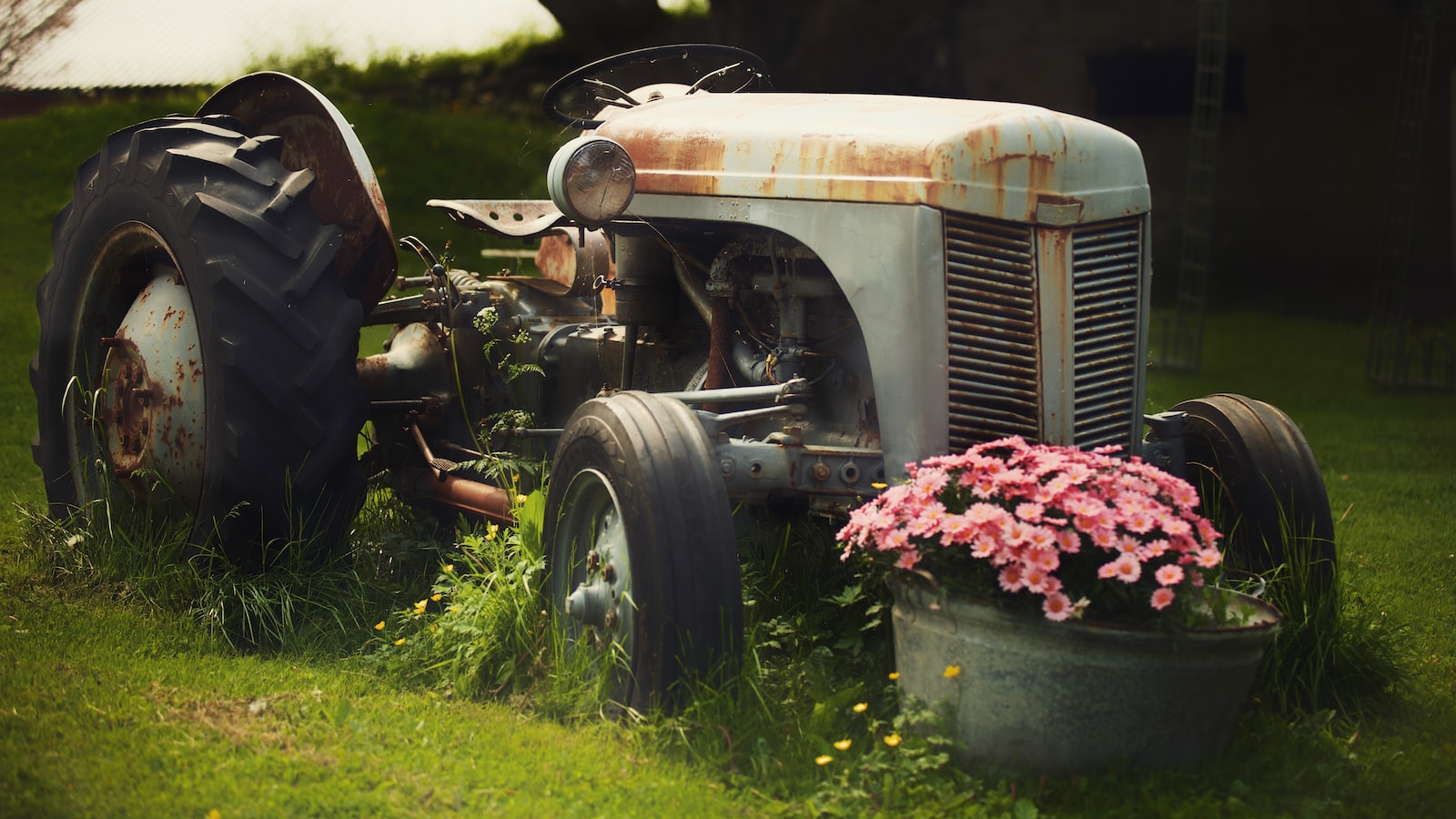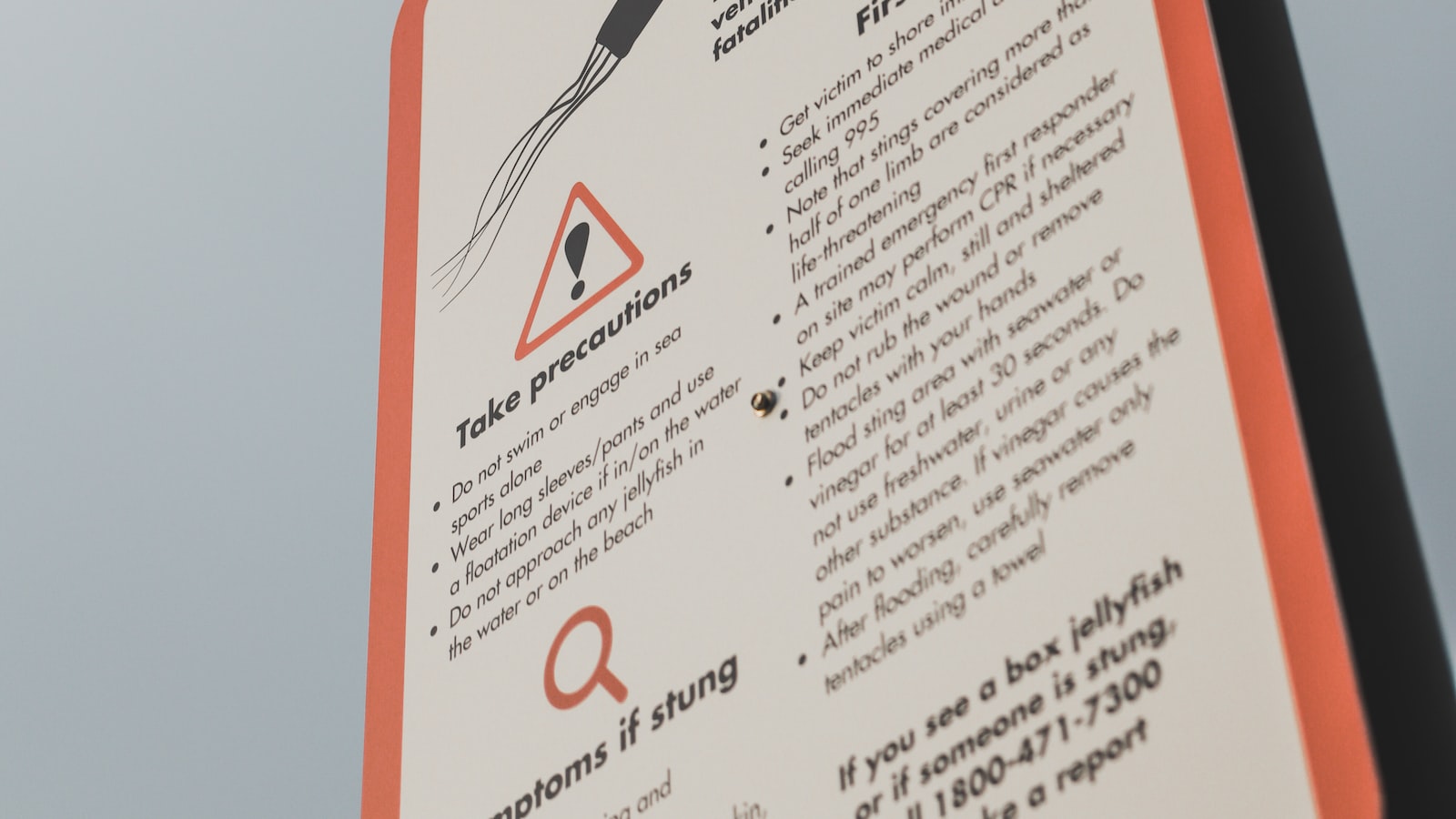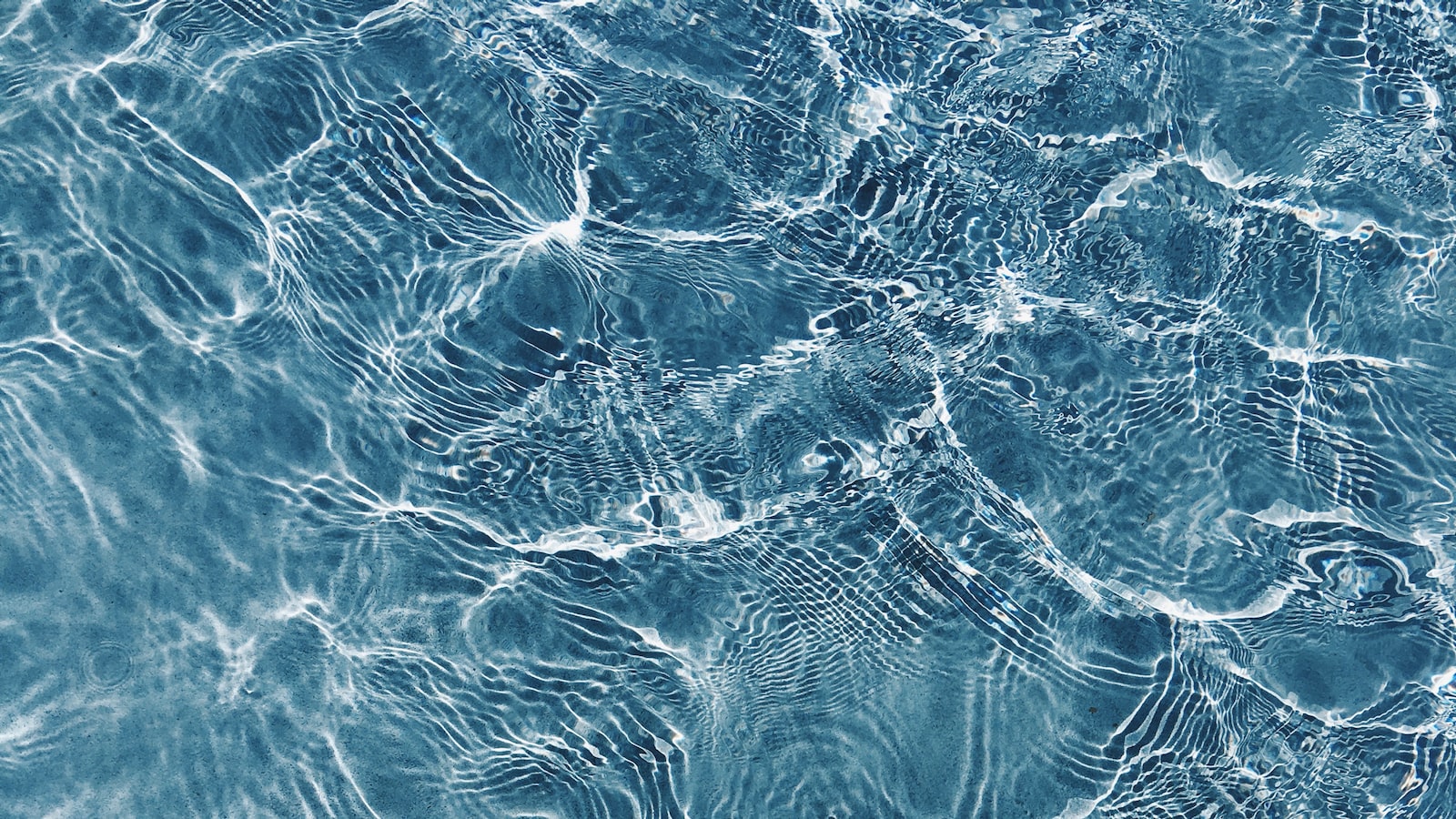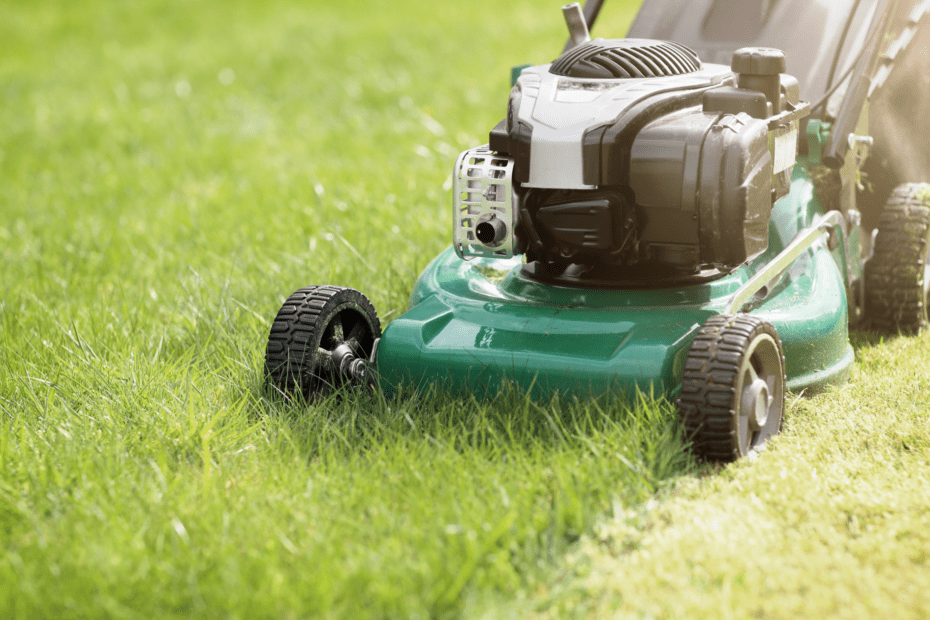Raindrops cascading down from the sky, dappling the world with liquid pearls. The pitter-patter of droplets gently tapping on windows, inviting a sense of peace and tranquility. However, amidst the blissful symphony of rainfall, one question looms over the minds of many homeowners: Can lawn mowers get wet? As nature unleashes its watery embrace, an exploration into the relationship between these well-oiled machines and Mother Nature’s showers unravels. In this article, we delve into the captivating realm of lawn maintenance, tackling the enigma surrounding the impact of rain on our trusted grass-cutting companions.
Can lawn mowers withstand exposure to water?
Can lawn mowers get wet?
Picture this: a serene summer evening, with the smell of freshly cut grass lingering in the air. As the sun sets, dark clouds start rolling in, and the first raindrops begin to fall. Panic ensues as you realize your trusty lawn mower is sitting outside, completely exposed to the elements. But fear not, dear reader, for we are here to address the age-old question:
The truth of the matter is that most lawn mowers are not designed to be completely waterproof. While they might be able to tolerate a slight drizzle or a damp lawn, exposing your mower to heavy rain or submerging it in water is not recommended. However, with proper care and preventative measures, you can ensure your mower survives a light water encounter unscathed.
Features and Tips:
| Feature/Tips | Benefits |
|---|---|
| Cover it up: | Invest in a weatherproof cover to shield your mower from rain, snow, and other moisture. |
| Dry it off: | After mowing damp grass, wipe down the exterior and blade with a dry cloth to prevent rust. |
| Store smart: | Avoid leaving your mower in wet areas for extended periods. Find a dry and enclosed space for storage. |

Precautions for using lawn mowers in wet conditions
Wet lawns can pose a challenge when it comes to using lawn mowers. While it’s not ideal for lawn mowers to get wet, there are precautions you can take to ensure safe and efficient operation. Firstly, always check the weather forecast before mowing your lawn. If rain is expected soon or the grass is still damp from previous rainfall, it’s best to postpone mowing until the lawn is dry. Mowing wet grass can not only damage your lawnmower but also have a negative impact on the overall health of your lawn.
When it comes to using a lawnmower in wet conditions, here are some essential precautions to keep in mind:
-
Choose the right type of mower: Opt for a mower specifically designed for wet conditions if your lawn tends to stay wet for longer periods. These models usually have enhanced grip tires, better traction, and special discharge features to handle wet grass clippings effectively.
-
Adjust the mower height: During wet conditions, raise the cutting deck of your mower. Mowing at a higher setting will help prevent the mower from getting clogged with wet grass clippings and reduce the risk of damaging your lawn.
-
Maintain your equipment: Regular maintenance is key to ensuring your lawnmower’s longevity. Keep the mower blades sharp and clean, as this will promote better cutting performance and reduce the likelihood of clumps being deposited on your lawn. Additionally, ensure your mower’s electrical components are well protected from moisture to avoid potential hazards.
Remember, safety is paramount when using lawn mowers in wet conditions. Take necessary precautions and consider investing in mowers specifically designed to handle moisture. By following these tips, you can ensure a well-groomed lawn while minimizing potential damage to your equipment.
Impact of water on different types of lawn mowers
Water can have different effects on various types of lawn mowers. While some lawn mowers are designed to withstand wet conditions, others can suffer damage or malfunction if exposed to moisture. It is essential to understand the impact of water on different lawn mowers to ensure their longevity and performance.
Electric lawn mowers are particularly sensitive to water. These mowers usually have electrical components that can be damaged by water. It is crucial to keep them away from rain or any wet areas. If an electric mower does get wet accidentally, it is essential to disconnect it from the power source immediately and thoroughly dry all the parts before attempting to use it again. Paying attention to the manufacturer’s instructions and guidelines for operating electric mowers in wet conditions is vital to prevent any potential harm.
On the other hand, gas-powered lawn mowers are generally more resistant to water. Most gas-powered mowers have engines and other components that are designed to withstand exposure to wet conditions to some extent. However, it is still advisable to avoid using them in heavy rain or wet grass as excessive water can result in corrosion and damage to the internal components over time. Regular maintenance, such as cleaning the mower after use and inspecting for any signs of water damage, is crucial to ensure their long-term durability.
Here are some useful features and tips to consider when dealing with the :
| Feature/Tips | Summary |
|---|---|
| Water-resistant housing | Look for mowers with water-resistant housing to protect the internal components from moisture. |
| Waterproof electrical connections | Ensure that the electrical connections in electric mowers are waterproof to prevent any potential damage due to water exposure. |
| Maintenance and cleaning | Regularly clean and inspect your lawn mower for any signs of water damage. Clean off any grass or debris that may accumulate during use. |
Remember, being cautious and taking appropriate measures to protect your lawn mower from water damage is essential to ensure its long-term performance and longevity.
Recommended maintenance tips for lawn mowers exposed to moisture
When it comes to lawn mowers, moisture can be a real concern. Whether it’s due to rain, dew, or even accidental spills, exposing your lawn mower to moisture can cause damage and reduce its lifespan. However, with the right maintenance tips, you can ensure that your lawn mower remains in optimal condition even when it gets wet.
Here are some :
| Feature/Tips | Description |
|---|---|
| 1. Dry the exterior | After each use, make sure to dry the exterior of your lawn mower using a soft cloth. This will prevent any moisture from seeping into the internal components. |
| 2. Check the air filter | Moisture can accumulate in the air filter, leading to reduced airflow and potential engine damage. Regularly inspect and clean or replace the air filter to ensure proper functioning. |
| 3. Protect electrical connections | Use electrical tape or protective covers to shield any exposed electrical connections. Moisture can cause corrosion and disrupt the electrical system, leading to malfunction or failure. |
By following these maintenance tips, you can protect your lawn mower from the harmful effects of moisture and enjoy a longer lifespan for your trusted gardening companion. Remember, prevention is key when it comes to keeping your lawn mower in top shape!
Frequently Asked Questions
Q: Can lawn mowers get wet?
A: Absolutely! Lawn mowers love rain as much as flowers do. After all, they live for the outdoors, so a little sprinkle won’t dampen their spirits. Just make sure to take proper precautions when it comes to the wet stuff, and your beloved mower will continue to prance through the green meadows.
Q: Is it safe to use a wet lawn mower?
A: Ah, a soaked mower might not be your best companion for a lawn dance. Operating a wet mower can be risky business, like mixing flip-flops with puddles. Exposing the electrical components to moisture could lead to damage or even short-circuits. So, it’s better to let your mower dry out before sending it back to the lawn catwalk.
Q: How can I protect my lawn mower from becoming a water wonderland?
A: Ahoy, Captain! To keep your mower high and dry, prevention is key. Invest in a snazzy lawn mower cover or create a cozy nook in your garage. Sheltering your mower from rain showers will make it sing with joy when the sun decides to shine again. Remember, a dry mower is a happy mower! As we reach the end of our expedition into the intriguing world of lawn mowers and their indomitable relationship with water, one thing remains certain: while the rain may dampen our spirits, it cannot quench the insatiable curiosity of our inquiring minds. We have explored the essential components that make up these marvels of modern gardening technology, delving into the deep recesses of their mechanical souls. We discovered how, against all odds, lawn mowers manage to navigate through verdant landscapes, taming unruly blades of grass with remarkable precision.
Now, as we address the bewitching question of whether these seemingly fragile machines can withstand a mercurial encounter with moisture, we are left pondering the mysteries of nature’s whimsy. Alas, ladies and gentlemen, it is a truth universally acknowledged that lawn mowers and water are not destined for a harmonious union. Caution must be exercised, for even the most resilient mowers may falter when confronted by excess moisture in their path.
Yet, fear not, dear readers, for all is not lost in the face of a summer rainstorm or a splash from a devious sprinkler. By employing a prudent approach, implementing protective measures, and performing regular maintenance, we can equip our cherished mowers against the perilous trials of dampness. From waterproof covers that shield their delicate innards to meticulous drying rituals, we hold the keys to preserving their resilience.
However, let us not forget that while guarding our mowers from water’s gentle caress seems prudent, it is perhaps the eloquent dance between earth and sky that bestows life upon our beloved gardens. So, before we bid adieu, remember to embrace the delicate balance that exists between granting our mowers a respite from the rain and allowing them to partake in the beautiful choreography of nature’s grand symphony.
In conclusion, dear readers, the answer to the enigmatic conundrum of whether lawn mowers can endure the wiles of water is nuanced and situational. While rain-soaked lawns may pose a temporary challenge, thoughtful precautions and tender care shall safeguard the longevity of our cherished mowing companions. So venture forth, with your newfound knowledge, a twinkle of caution in your eye, and let your lawn mowers tread upon the green tapestry of your gardens, come rain or shine.
- When to Put Weed and Feed on Lawn in Michigan - October 16, 2023
- When to Fertilize Potatoes Plants - October 16, 2023
- Can You Plant Clover in the Spring - October 16, 2023
Contents

